The Sidewinder
For my second subwoofer, I wanted a smaller box with no port noise, a higher output, a lower cutoff frequency and a better standard of finish. Switching to the Jaycar driver with a lower Vas and fs, cut the box size from 90 litres to 65 litres.
The enclosure was veneered in blackwood with redwood top and bottom.
Originally fitted with 50mm internal ports, this enclosure looked quite good.
Port noise forced the move to larger external ports, and the controversial looking Sidewinder was born!
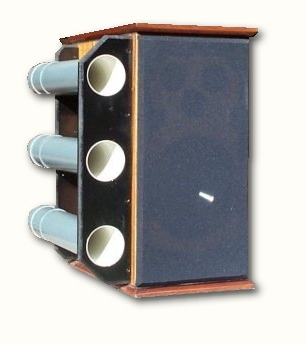
- Single 10 inch Jaycar CS-2274 Driver
- 150W Jaycar AMP
- 65 Litre 2.3 cu.ft enclosure - 32kg - 70lb
- 650H * 440W * 640D
- Tuning Frequency 26 Hz
- Three 86mm external ports
- WinISD Calculated Peak Output 106 dB
- Measured Avg Output (Complex Sound) before distortion 93db
- Estimated cost $650 Aus. incl Active Filter
The 150W amplifier is the only one in the Jaycar range without boost, which gives a flatter response. This gives a slightly higher Peak SPL of 106db, but more significantly, gives a better output in the 25-30hz range
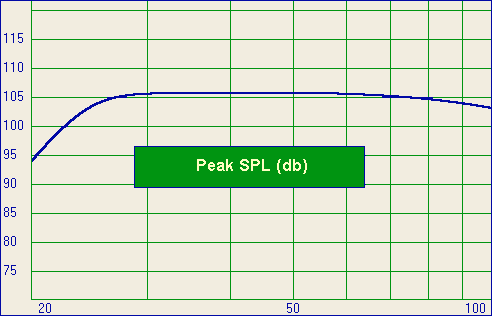
Originally this speaker had three 50mm internal ports and the noise was atrocious.
By this time, a later version of WinISD was available, which graphs vent air velocity
and recommends that the peak not exceed 17 m/sec.
Blanking of the original ports and moving up to three 90mm ports gets this figure to below 10 m/sec.
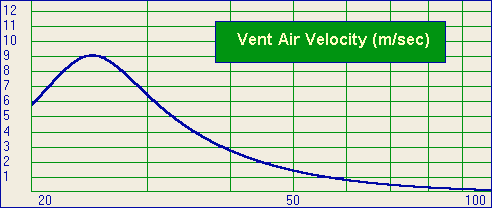
Cone excursion was going to be excessive below the vent's resonant frequency
and so a separate Linkwitz-Riley Active filter was used.
See the description of the Linkwitz filter at the bottom of the Active filter page
The Blue line is with the filter and the Brown line is without.
Xmax is the Red line
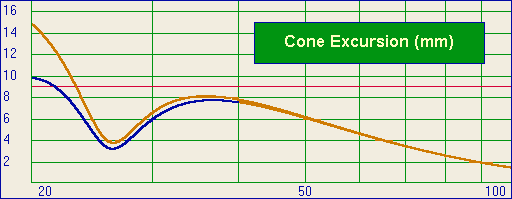
The ends of the ports were hand sanded for a flare of approximately 5mm. Unfortunately some "chuffing" is still heard on louder content. This Flare-it screenshot shows why
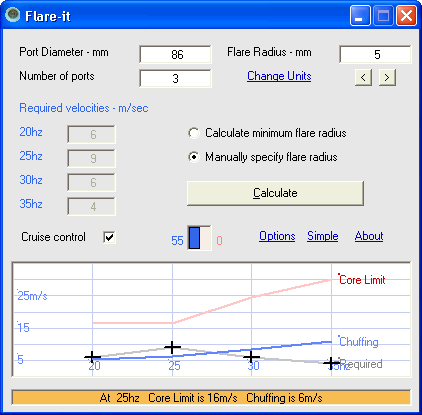
A minimum of 16mm flares would have solved the problem. This would have been a good candidate for 20mm heat molded flares
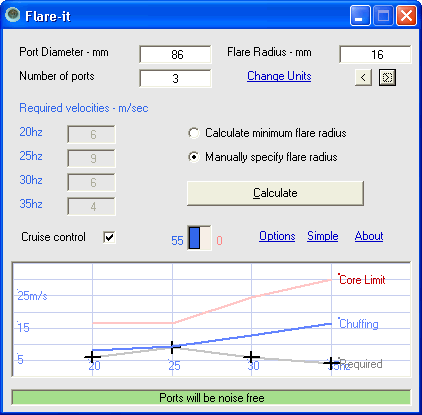
Sidewinder Gallery
Quarter view
Another look at port mounting. The rear of the port slides through rings cut from the ends of joiners
Grille Off
The original ports which have been blanked off are visible in this shot
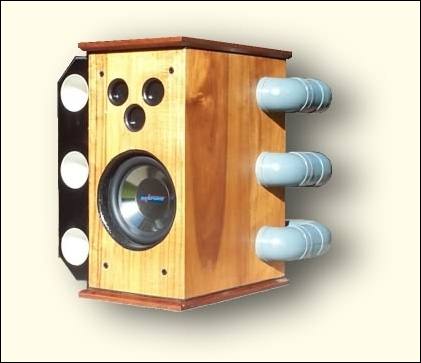
Port upgrade
The new ports let into side wall, straight through the veneer
Port close-up
Close-up of port. In hindsight, some flares would have been good...
Wraparound - LHS
Wrap around ports are visible in this shot. 90 degree elbows were used for the bends
Wraparound-RHS
Rear view showing port-wall junction. Elbows are not glued, so port segments can be removed for access to the amplifier
